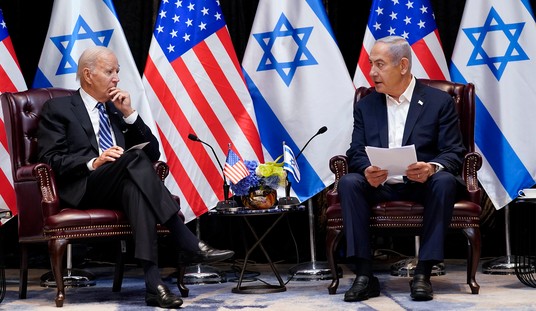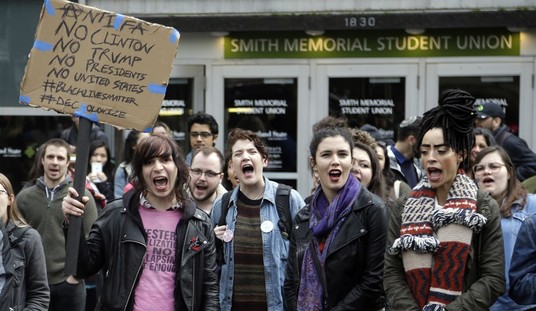As Jazz reported on Sunday, the White House is mighty pleased with the latest development of world powers’ six-month interim deal with Iran, which now has an official start date of January 20th whereby the Iranians will ostensibly begin eliminating some of their stockpile of enriched uranium and the requisite infrastructure — but the possibility that Iran might carry out their threat of walking away from the Geneva process has the Obama administration doubling down hard on their lobbying and warnings against the cautionary sanctions bill gaining traction in the Senate. Via Reuters:
“Now is the time to give diplomacy a chance to succeed,” Obama said in a written statement after the European Union said that Iran and six major powers had reached an accord to implement a November 24 nuclear agreement with Iran. …
Obama also urged the U.S. Congress not to impose additional sanctions on Iran, saying that doing so risked undermining the November 24 agreement, known as the Joint Plan of Action (JPA), which aims to give the two sides six months to reach a comprehensive deal to address all questions about whether Iran seeks nuclear arms. …
“Imposing additional sanctions now will only risk derailing our efforts to resolve this issue peacefully, and I will veto any legislation enacting new sanctions during the negotiation,” Obama said in the statement, echoing a previous veto threat.
The Nuclear Weapon Free Iran Act had an official co-sponsor count of 59 senators (including 16 Democrats) as of Friday, plus reports that the real support tally could be somewhere closer to a very veto-proof 77 yeas. Senate Majority Leader Harry Reid has been pretty deliberately vague about whether or not he will eventually allow for a vote on the matter, but the Weekly Standard and the WSJ suggest that he’ll continue playing defense for the White House despite the growing digression from his own Democratic colleagues:
“I am worried the administration’s policies will either lead to Iranian nuclear weapons or Israeli airstrikes,” said Sen. Mark Kirk (R., Ill.), a leading supporter of the bill. “It’s time for the United States Senate to pass common-sense bipartisan legislation, now co-sponsored by 59 senators, to ensure this process leads to the peaceful dismantlement of Iran’s nuclear program.”
Senate Majority Leader Harry Reid (D., Nev.), a close White House ally, has no plans to soon bring the bill to the floor for a vote, people familiar with the process said. But, given the legislation’s strong bipartisan support, it was unclear how long Mr. Reid can buck pressure to hold a vote, making the Obama administration’s lobbying of individual senators even more critical. The lawmakers said they have a veto-proof number of 67 supporters in the Senate. …
The next stage—talks aimed at making the final agreement—are expected to begin in two to three weeks, said U.S. and Iranian officials. A senior U.S. official said the Americans judge chances of a final deal to be about “50-50.”








Join the conversation as a VIP Member